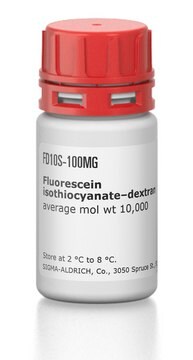19-1330
2-Mercaptoethanol
SAJ special grade, ≥99.0%
Synonym(s):
β-Mercaptoethanol, 2-Hydroxyethylmercaptan, BME, Thioethylene glycol
About This Item
Recommended Products
grade
SAJ special grade
vapor density
2.69 (vs air)
vapor pressure
1 mmHg ( 20 °C)
Assay
≥99.0%
form
liquid
expl. lim.
18 %
availability
available only in Japan
concentration
14.3 M (pure liquid)
refractive index
n20/D 1.500 (lit.)
pH
4.5-6 (20 °C, 500 g/L)
bp
157 °C (lit.)
density
1.114 g/mL at 25 °C (lit.)
SMILES string
OCCS
InChI
1S/C2H6OS/c3-1-2-4/h3-4H,1-2H2
InChI key
DGVVWUTYPXICAM-UHFFFAOYSA-N
Looking for similar products? Visit Product Comparison Guide
Related Categories
Application
Signal Word
Danger
Hazard Statements
Precautionary Statements
Hazard Classifications
Acute Tox. 2 Dermal - Acute Tox. 3 Inhalation - Acute Tox. 3 Oral - Aquatic Acute 1 - Aquatic Chronic 2 - Eye Dam. 1 - Repr. 2 - Skin Irrit. 2 - Skin Sens. 1A - STOT RE 2 Oral
Target Organs
Liver,Heart
Storage Class Code
6.1A - Combustible acute toxic Cat. 1 and 2 / very toxic hazardous materials
WGK
WGK 3
Flash Point(F)
165.2 °F - closed cup
Flash Point(C)
74 °C - closed cup
Personal Protective Equipment
Regulatory Listings
Regulatory Listings are mainly provided for chemical products. Only limited information can be provided here for non-chemical products. No entry means none of the components are listed. It is the user’s obligation to ensure the safe and legal use of the product.
PDSCL
Poisonous substance
PRTR
Class II Designated Chemical Substances
FSL
Group 4: Flammable liquids
Type 3 petroleums
Hazardous rank III
Water soluble liquid
ISHL Indicated Name
Substances Subject to be Indicated Names
ISHL Notified Names
Substances Subject to be Notified Names
JAN Code
19-1330-5-500ML-J:
19-1330-2-25G-J:
Certificates of Analysis (COA)
Search for Certificates of Analysis (COA) by entering the products Lot/Batch Number. Lot and Batch Numbers can be found on a product’s label following the words ‘Lot’ or ‘Batch’.
Already Own This Product?
Find documentation for the products that you have recently purchased in the Document Library.
Our team of scientists has experience in all areas of research including Life Science, Material Science, Chemical Synthesis, Chromatography, Analytical and many others.
Contact Technical Service









